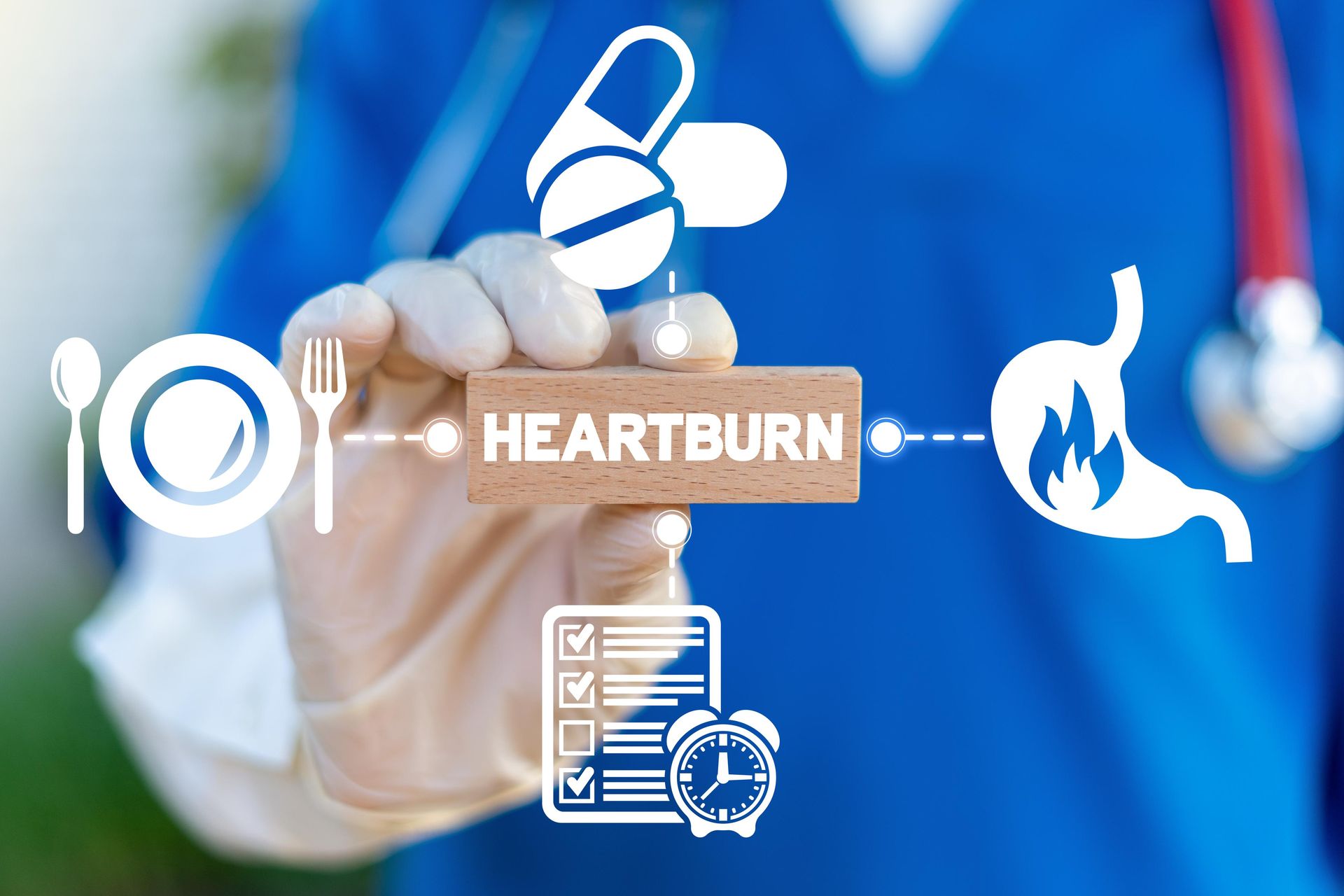Heartburn is a common yet uncomfortable condition that affects many people. In this article, we will share practical tips to manage heartburn, help you identify its warning signs, and provide guidance on when it is time to seek professional medical advice.
Whether you are experiencing occasional discomfort or frequent flare-ups, this resource will equip you with the knowledge you need to take control of your heartburn and improve your quality of life.
What is Heartburn?
Heartburn occurs when stomach acid, which is supposed to stay in your stomach, refluxes or flows back into the oesophagus (also known as the food pipe, the part of your digestive system that connects your mouth and stomach). This irritates the sensitive lining of the oesophagus, causing the familiar burning sensation.
It is often triggered by acidic or spicy foods, stress, or lying down too soon after eating.
How Do I Find Relief?
Over-the-Counter (OTC) Medications
For immediate relief, OTC antacids can neutralise stomach acid and calm the burning sensation. However, they are not a long-term solution.
Other medications, such as H2 blockers and proton pump inhibitors (PPIs), work differently, reducing stomach acid production.
Always adhere to dosage guidelines and consult your doctor/pharmacist about potential side effects.
Lifestyle Changes
Simple lifestyle changes can also make a big difference. Try eating smaller, more frequent meals to prevent overloading your stomach. Identify and avoid your personal trigger foods – common ones include citrus fruits, tomatoes, chocolate, and peppermint.
It is also important to elevate the head of your bed and to avoid lying down after eating. Maintaining a healthy weight and quitting smoking are also crucial lifestyle changes that can significantly reduce heartburn symptoms.
When To Call Your Doctor
While occasional heartburn is common, persistent or severe symptoms warrant professional medical attention.
If you are relying on OTC medications for more than two weeks, it is advised to consult your healthcare provider.
If you are experiencing severe symptoms, such as unexplained weight loss, difficulty swallowing, or chest pain, seek medical attention immediately.
A doctor can help to identify the underlying causes of your heartburn, rule out any serious conditions, and recommend the most appropriate treatment option for you.
Untreated heartburn can lead to further complications, so it is better to get checked.
Take Control of Your Heartburn
It is important to not let heartburn dictate your daily life. By combining responsible OTC medication use with smart lifestyle choices and proactive medical consultations, you can reclaim control.
Prioritise your health by always staying informed, and consulting your doctor or pharmacist whenever you have any concerns or questions. Regular check-ups with your doctor are essential for your long-term health and well-being.






